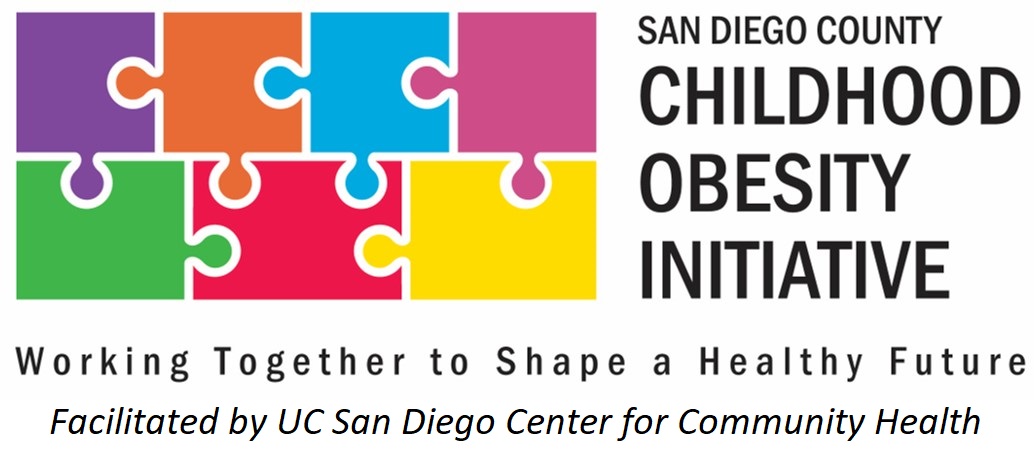Events & Presentations
Active Transportation Program: A Forum to Strengthen Funding Applications
The San Diego Association of Governments in partnership with the San Diego County Childhood Obesity Initiative and Alta Planning + Design, hosted a forum designed to strengthen applications for funding through the Active Transportation Program (ATP). The ATP was created by the California Legislature in 2014 with a number of specific goals: increasing the proportion of biking and walking trips in California; increasing mobility and safety for non-motorized users; reducing greenhouse gas emissions; improving public health; and ensuring that disadvantaged communities fully share in the benefits of the program. Over the past 4 years, ATP has provided more than $900 million in funding to make communities across California more bikeable and walkable. The 2018 awards will range from a minimum of $250,000 to greater than $10 million. The forum brought together city and school district staff to walk through the application process and shared local resources. Additionally, the forum was an opportunity for attendees to develop meaningful connections with one another with the goal of securing funding for Safe Routes to Schools and active transportation infrastructure and programming throughout San Diego County.
Assessing Health Disparities in Underserved Populations
This webinar provides education on disparities within underserved populations, specifically as they relate to childhood obesity and the Hispanic/Latino population. This webinar helps to increase knowledge and understanding of root causes related to health disparities, as well as policies and practices that can reduce health disparities and improve health outcomes by reducing childhood obesity. The webinar goes into current research and projects underway that are addressing health disparities in the Hispanic/Latino population and is designed for community leaders and professionals in public health, healthcare, government, and others who are seeking a more comprehensive understanding of health disparities related to childhood obesity in the Hispanic/Latino community and strategies that can be used to reduce those disparities. Although health disparities affect many communities, whether by gender, race, or class, the COI has identified addressing health disparities affecting the Hispanic/Latino community as a priority. The Hispanic/Latino community in San Diego County represents just over a third of the population and recent data from the State of Childhood Obesity in San Diego County report suggest that the rate of Hispanic/Latino students in 5th, 7th, and 9th grade affected by obesity is over twice that of their non-Hispanic classmates.
Assessing Wellness Policy Implementation: the Who, the Why and the How
Representatives from 23 school districts joined school wellness advocates on Friday, February 9 for a wellness workshop facilitated by the Chronic Disease and Health Equity Unit of Public Health Services and coordinated by the Schools & After-School Domain of the San Diego County Childhood Obesity Initiative (COI). Participants reviewed two evidence-based implementation assessment tools, discussed local best practices, and learned how assessment data can be used to meet school district objectives. Workshop partners and speakers included the Alliance for a Healthier Generation, California Department of Education, University of Illinois at Chicago, San Diego County Office of Education, San Diego Unified School District, Santee School District, Dairy Council of California, and University of California, San Diego Center for Community Health. The workshop was one in a series of nearly 20 trainings presented since 2007 to support school districts in developing, implementing, and monitoring school wellness policies with the goal of creating healthier environments.
Addressing Childhood Obesity: Practical Office-Based Resources and Strategies, HEDIS Measures, Latino Cultural Competency and Real Life Case Studies
The Healthcare Domain conducted its first webinar on Thursday, January 21, 2010 to equip healthcare providers with practical in-office strategies for addressing childhood obesity. The two-hour session provided training on office resources, HEDIS measures, and cultural competency. Presenters included: Scott Gee, MD, FAAP, Director, Prevention & Health, Kaiser Permanente Northern California; Shaila Serpas, MD, Assistant Program Director, Scripps Family Medicine Residency Program; and Christine Wood, MD, FAAP, Pediatrician, El Camino Pediatrics, Co-Chair, San Diego County Childhood Obesity Initiative. Two (2.0) AMA PRA category 1 credit(s) were made available to participants through Rady Children’s Hospital-San Diego.
Childhood Obesity Summit
The San Diego County Childhood Obesity Initiative convened over 600 national and local leaders on Thursday, September 20, 2007 to identify and engage partners in comprehensive solutions to combat childhood obesity. The Childhood Obesity Summit was the first of its kind in San Diego County and brought together key leaders from government, healthcare, education, early childhood, community, media, and business sectors. Speakers and breakout sessions focused on the role each sector of the community can play in creating healthier food and physical activity environments for San Diego County children and families.
School Food Summit: Improving Student Nutrition in San Diego County
The Coalition on Children and Weight San Diego (CCWSD), the forerunner to the San Diego County Childhood Obesity Initiative, teamed up with County Board of Supervisor Pam Slater-Price and HealthLink North County to host the School Food Summit on Wednesday, March 9, 2005. More than 240 school board members, administrators, food service directors, nurses, staff, and parent leaders representing 36 school districts attended the event to identify key opportunities for creating healthy school food environments. Participants received information and training on creating positive food environments through legislative advocacy, best practices, and action plan development and implementation.

